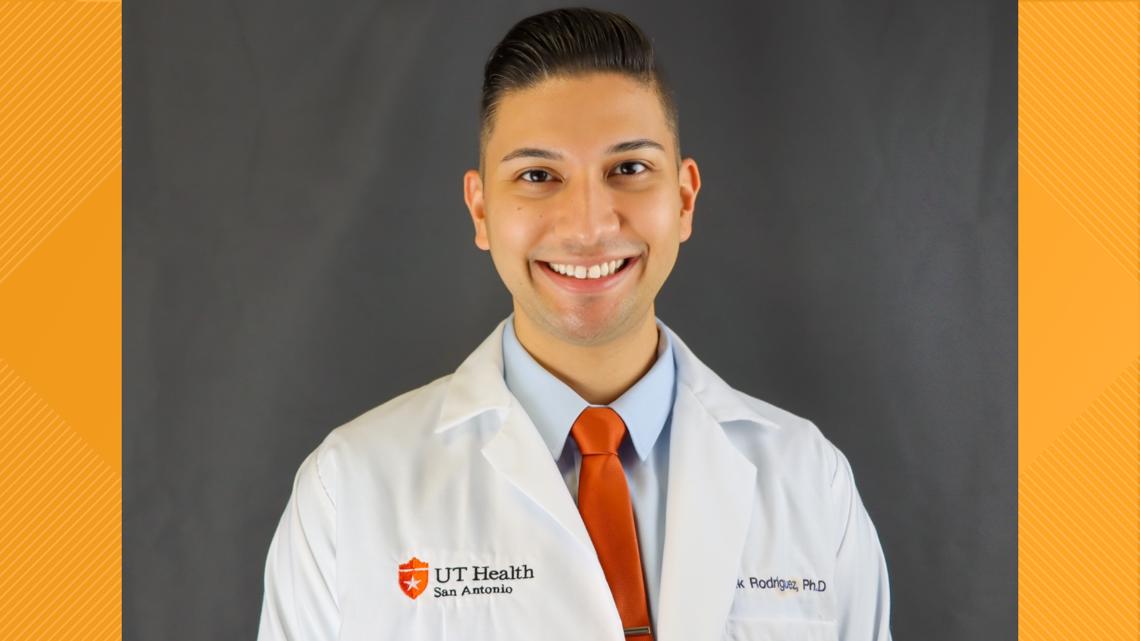Derek Rodriguez leads a groundbreaking study on Hispanic/Latino cancer survivorship at UT Health San Antonio.
SAN ANTONIO — For Derek Rodriguez, cancer research isn’t just a career. It’s personal. At 8 years old, Rodriguez was diagnosed with rhabdomyosarcoma, a rare form of cancer that affects muscle tissue.
“I asked myself, ‘Why?'” Rodriguez said. “Why did this happen? Is it because I didn’t go to bed on time or didn’t eat my vegetables?”
Undergoing chemotherapy and radiation as a child, Rodriguez often wore hats in photos, but not for style. He had to cover the hair loss and missing eyebrows.
“I didn’t have to learn empathy,” he said. “Because I lived through it.”
That early experience shaped his life’s mission. Inspired by the doctors who treated him, Rodriguez once thought he would become an oncologist.
“Your superhero is your doctor,” he said. “So, my initial thought was, I’m going to go to medical school. I’m going to be an oncologist and help people.”
While he didn’t end up practicing medicine, Rodriguez is still helping patients, by seeking answers to deeper questions through science. He’s a senior clinical research scientist at the Institute for Health Promotion Research at UT Health San Antonio. Rodriguez oversees large research studies focused on cancer and survivorship.


“I want to help the patients,” he said. “But there’s something deeper in understanding why, why is this happening?”
Rodriguez is currently working on a major project: the Avanzando Caminos (Leading Pathways): Hispanic/Latino Cancer Survivorship Study. The long-term study aims to enroll 3,000 participants and examine various biological, social and mental health factors in Hispanic and Latino populations.
“What we’re trying to understand is what the health-related quality of life is like post-cancer,” Rodriguez said. “All of these factors that may not be otherwise known in other study populations are not really understood in Hispanic and Latinos. So, this is the first of its kind study doing that.”
The research is being conducted in South Texas and South Florida, where there are diverse Hispanic and Latino populations. Rodriguez and his team are still actively recruiting participants.
“This is how you amplify your voice to help future survivors,” Rodriguez said.
For more information on the study, click here.
